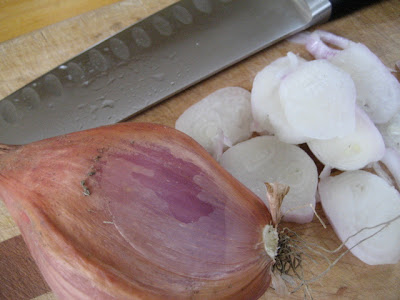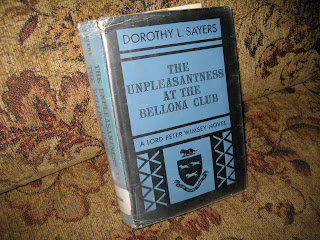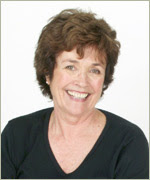
The view outdoors today is a little different from the one I used on my
first blog entry, November 22, 2006. In a year's time, as is always the case, some things have changed and others have stayed much the same. For the first time since I was a young girl and faithfully kept a diary, I have documented a full year in my life. The difference is that this journal is on view to the whole world whereas that little book I had was kept under lock and key.
Because the actual blog anniversary comes on our Thanksgiving, I thought I would write today about what my year of letters has meant to me.
First off, I want to thank
Les for helping me with tons of technical advice and encouragement when I finally decided to enter the blogging life.
Elizabeth Winthrop, the writer, says that her blogging brother:
suggests that it’s useful to try to stick to one subject when I write in this online journal as it gets a conversation going, but another brother and I discussed the other day how, in our professional lives, we’ve been grasshoppers. Whatever catches our attention pulls us in a new direction. Editors have commented often that I write for so many different ages and audiences which is a consequence, I believe, of my grasshopper nature, so I expect the same will happen here.I am just like this. I am a general practitioner, rather than a specialist. My "letters" are as they would be if I were composing handwritten notes. When my dear readers come by they may find something about the garden or the animals or a recipe or a book. On "interesting" weather days, Mrs Bale likes to pop in and offer a report. Some days I let the photographs tell my story. There are times I don't write, and there are other times I may have three entries a day. My blog is full of letters to the world, while at the same time it is a kind of country journal that perhaps my children, and possibly grandchildren might enjoy years hence. Sometimes I wish I were the kind of person who focused on one thing, but that just isn't me. And this is probably why I enjoy being home. It is a life full of variety. I may go from putting in a load of wash, to starting bread; from taking photos, to reading; from hanging that wash or rising that bread before heading out to the garden to see what's available for supper.
I view the many blogs I read as novellas or short stories. I can go on a journey without leaving my house (my favorite kind of traveling). Some mornings I'm in the mood for a little touch of
homelife in Scotland. Another day, when the light is just right, I remember my 1998 week in Texas, and drop in on
Patty to bring back the feeling. There are blogs too numerous to mention which I visit when I want to read a good book review. When I want a quote which will stay with me all day I stop by
Kay's. Each blog I visit is as different as the person who keeps it. I can go from seeing
bees in New Zealand to my old friend,
Heidi's house in Holland. The blog experience has proved an excellent way to keep in much better touch with people I have known for years via email groups. You may have noticed that my blogroll on the sidebar gets longer all the time. My lists are a bit like a TBR (to be read) shelf. I guess I might call them TBV, to be visited. I don't get to all the blogs I love every day or even every week. But as I go along in my day, I might find myself wondering how
Lizzie's twins (two sets!) are doing, and I'll go visit. I am in contact with people of many ages, from twentysomethings to seventysomethings. What an incredible thing.
I really, really love all the blogs on my sidebar. My life is deeper, broader, wider because I know these people all over the world. I think of bloggers, at least the ones I read, as a real force for change in the world. They are filled with kindness, fine spirits, intelligence, love for their families and friends and homes and gardens and books and for life itself. I have learned immeasurably from each one. I mentioned on someone's blog that I no longer read any book reviews except those of bloggers. They are all I need. They are smart and witty, and these people write better than most reviewers in publications. I find sustenance in my gardening endeavors each time I visit one of the many garden blogs. There is a hospitality that comes through in blogs. A "welcome to my world" sort of feeling. But it doesn't stop there. These very busy people find time, indeed make the time, to drop by at other blogs. It is an incredibly wonderful network, and I thank each of you for enriching my life immeasurably.
On this day, I find myself thinking about what I might like to do in the next year.
I may want to focus a bit more on movies, including reviews of rental dvds.
I think I want to do a weekly garden tour of the flowers and vegetables, probably beginning in early May.
I want to do more book reports. I have joined some challenges, all of which involve reading my
own books, and I hope to write about the books I read.
The other day I had a comment asking for more recipes, and I will try to oblige. Are there subjects that you would like to read about when you come by to visit?
It is fitting that this letter comes at Thanksgiving time because I am so very thankful to each of you who leave your own notes on my blog. I love to read them. You cheer me, you encourage me, and you enlighten me. As a little thank you, I am going to give one of you a present to celebrate this year anniversary. I bought a wall calendar with gorgeous photographs of my area. All you have to do to be entered in the drawing is to leave a comment on my blog from today, November 20 through Saturday, November 24. On Sunday, the 25th, all the names will go into a basket and I will pick one.


















































